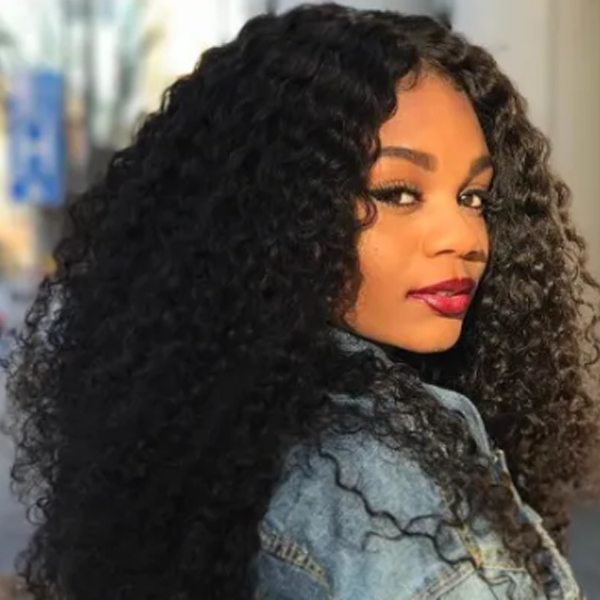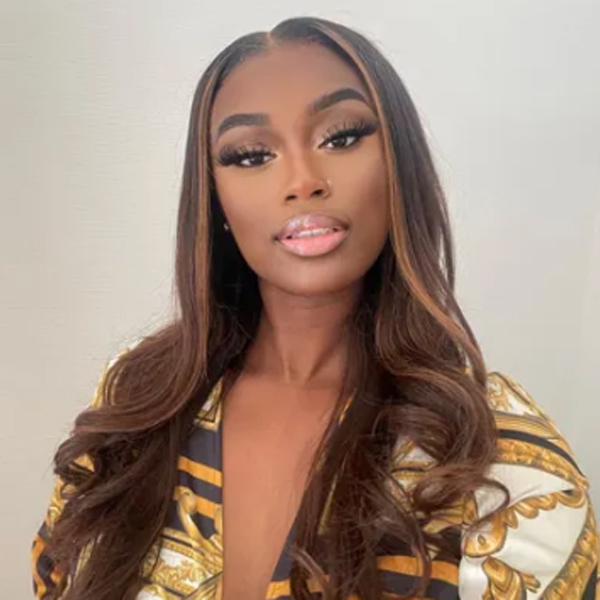Hair loss, regardless of age, is unquestionably one of the most well-known and significant diseases in both men’s and women’s lives. While some causes of hair loss are autoimmune deficiencies that manifest with age. Hair loss can cause a variety of psychological issues, including stress, anxiety, and low self-esteem. However, can creatine cause hair loss? Various studies are still underway on whether creatine causes hair loss, but current evidence does not suggest that creatine causes hair loss or baldness, according to Nova Southeastern University exercise physiologist Dr. Jose Antonio.
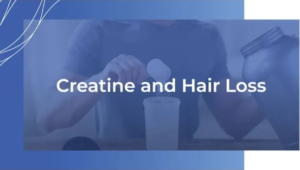
What exactly is Creatine?
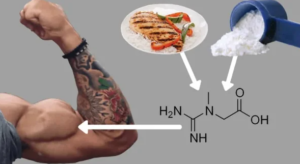
Creatine is a well-known organic compound that improves adenosine triphosphate (ATP) circulation in the brain and muscles.
Because ATP is the energy currency of cells, creatine aids in the replacement of energy in the brain and muscle cells. As a result, creatine is a well-known and influential nutritional supplement, particularly among athletes who use it for extra support.
Creatine is used by many athletes, including basketball, soccer, and rugby players. Creatine, in addition to providing energy, helps to build muscle mass and improve overall performance and strength. Furthermore, numerous studies have found that taking creatine helps to prevent neurological disorders.
Creatine Advantages
Creatine is simply an amino acid derivative. It aids in the production and storage of the molecule Creatine Phosphate (Pcr), which muscles use to generate energy during low-intensity, high-intensity exercise. It may also help patients with neuromuscular disease, type 2 diabetes, Parkinson’s, Alzheimer’s, and traumatic brain injury improve their memory and brain function. Supplements can even help limit the extent of concussion damage. Creatine can also be used in conjunction with exercise to slow or even reverse age-related muscle loss (sarcopenia).
Is creatine responsible for hair loss?
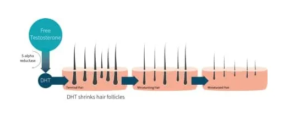
There have been no scientific studies that show creatine causes hair loss. The study used to support the myth that creatine causes hair loss began in 2009. For three weeks, a group of college-aged football players took creatine daily. The participants had “statistically significant” increases in dihydrotestosterone (DHT), a testosterone byproduct that shrinks hair follicles, shortens the hair growth cycle, and causes hair thinning at high levels, according to the study.
The increase in DHT can cause hair loss in some men, but this group’s study did not specifically mention it. Creatine does not cause hair loss, according to scientific evidence. Overall, more research on the effects of creatine on DHT levels is required. More research should be done to see if the increase in DHT caused by creatine supplementation is enough to cause hair loss.
Other possible reasons for hair loss
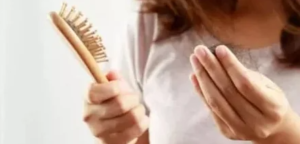
Hair loss is something that everyone goes through on a daily basis. Most people lose 50 to 100 hairs per day as part of this natural cycle. This is usually undetectable because new hair grows at the same rate as old hair. Hair loss occurs when new hair is unable to replace lost hair.
Hair loss can be caused by a variety of factors. Genetics, aging, hormonal fluctuations, stress, and various medical conditions and medications such as thyroid disease and iron deficiency anemia, as well as tight ponytails, braids, and buns, are the most common causes of permanent hair loss. A poor diet could also play a role.
What can I do to help prevent hair loss?
Hair loss prevention and treatment can be greatly influenced by one’s way of life. Some things you can do at home to keep your hair full and healthy are as follows:
1. Use a gentle shampoo to wash your hair on a regular basis. You can prevent hair loss by keeping your hair and scalp clean by washing your hair on a regular basis. Regular hair washing reduces the risk of infection and dandruff, which can cause hair breakage or loss.
2. Consume vitamins. Vitamin A promotes healthy sebum production in the scalp. Vitamin E promotes blood circulation to the scalp and keeps hair follicles active, while vitamin B promotes healthy hair color.
3. Include more protein in your diet. Eating lean meat, fish, soy, or other proteins can help promote healthy hair, which can help reduce hair loss.
4. Massage essential oils into your scalp. Those who are experiencing hair loss should massage their scalp for a few minutes with essential oils. It will assist in keeping your hair follicles active.
5. Maintain proper hydration. Because the hair shaft contains one-quarter of water, drink four to eight glasses of water per day to stay hydrated and promote healthy hair growth.
6. Limit your intake of alcoholic beverages. Reduce your alcohol consumption if you are losing hair, as alcohol can inhibit hair growth.
7. Reduce your stress. Previous research has found medical evidence linking stress to hair loss. De-stress yourself by practicing meditation, which is one method. Meditation and yoga, for example, can not only reduce stress but also restore hormonal balance.
8. Avoid excessive heating and drying. Allow your hair to be heated and dried on a regular and consistent basis. Heat weakens hair proteins, and frequent heating and drying can result in brittle and weakened hair, which can lead to hair loss.
9. Maintain a dry head. Summer sweating can cause dandruff and an increase in hair fall in men with oily hair. Using an aloe vera shampoo will keep your scalp cool and prevent dandruff.
Conclusion
Hair loss is extremely common, and it is not something to be ashamed of. Creatine supplements are excellent for increasing muscle mass, improving performance, and treating a variety of neurological disorders. If you notice patchy hair loss or more hair loss than usual when you comb or wash your hair, you should see a dermatologist right away to start treatment.


